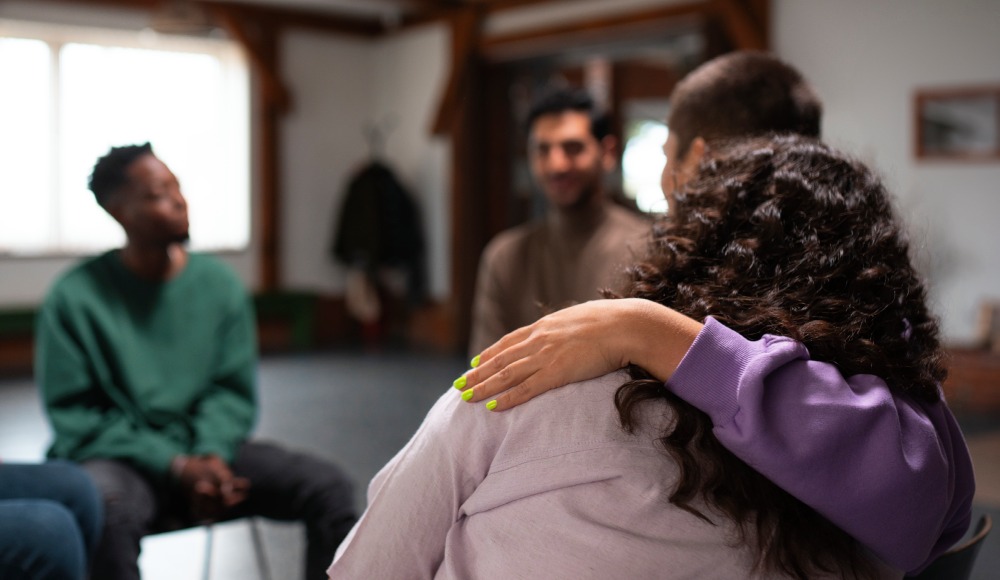
Addiction is a complex and deeply personal battle that affects millions of people worldwide. It doesn’t just impact the person struggling with it—it reverberates through families, friendships, and communities. Whether it’s drug addiction, alcohol abuse, or other compulsive behaviors, the road to recovery is a challenging but achievable path.
This blog will guide you through what addiction really entails, its consequences, and the steps involved in reclaiming your life through addiction treatment and recovery. If you or someone you love is dealing with addiction, know that help is available, and a brighter future is possible.
Understanding Addiction
What Is Addiction?
Addiction is a chronic disorder characterized by compulsive behaviors despite harmful consequences. While substance abuse might involve episodic misuse of drugs or alcohol, addiction goes deeper, involving physical dependence, withdrawal symptoms, and an ongoing inability to stop.
Contrary to popular belief, addiction is not just a lack of willpower. It’s a multifaceted condition influenced by genetic, psychological, and environmental factors. Recognizing this distinction is crucial for effective treatment.
Common Signs and Symptoms of Addiction
Addiction doesn’t always appear the same for everyone, but some common signs include:
- Increased tolerance, requiring higher quantities of the substance for the same effect.
- Persistent cravings that dominate daily thoughts.
- Withdrawal symptoms such as anxiety, nausea, or irritability when the substance is unavailable.
- Neglecting responsibilities at home, work, or school.
- Financial or legal problems linked to substance use.
If you notice these signs in yourself or someone close, it might be time to explore options like drug rehab or alcohol rehab for support.

Types of Addiction and Their Effects
Drug Addiction
Drug addiction affects not only the body but also mental health. Long-term abuse can lead to serious health problems, including liver damage, heart issues, and cognitive impairments. It also strains relationships, affects employment, and often leads to social isolation.
Beyond personal impacts, the ripple effects of drug addiction touch society through healthcare costs, lost productivity, and legal issues surrounding drug abuse.
Alcohol Addiction
Alcohol abuse is another widespread issue with devastating consequences. Chronic misuse of alcohol can result in liver disease, weakened immune function, and increased risk of mental health conditions like depression or anxiety. Socially, it disrupts families, fosters financial instability, and can lead to driving accidents.
Both drug and alcohol addiction require professional intervention, as untreated symptoms can escalate over time. Addressing the root causes is vital.
The Role of Rehab Programs
Rehabilitation programs provide a structured path to recovery, combining medical care, counseling, and behavioral therapies tailored to individual needs. Here’s a closer look at what rehab involves:
Types of Rehab Programs
- Inpatient Rehab offers a residential environment with 24/7 support and monitoring. It’s ideal for severe addiction cases or those needing a controlled, distraction-free environment.
- Outpatient Rehab allows individuals to continue their everyday lives while attending scheduled therapy sessions. This is a flexible option for milder cases or those with strong external support systems.
Importance of Personalized Treatment Plans
No two addiction journeys are the same, which is why a one-size-fits-all approach doesn’t work. Rehab centers create personalized treatment plans based on the type of addiction, medical history, and personal goals to help individuals recover effectively.
The Detoxification Process
Detoxification, or detox, is often the first step in rehab. It involves safely removing the substance from the body under medical supervision. Though it can be challenging due to withdrawal symptoms, this stage prepares individuals for the next phases of recovery.
Faith Recovery Center
2200 Coldwater Canyon Dr, Beverly Hills, CA 90210, USA
(818) 583 – 0960
Therapies for Long-Term Recovery
Behavioral therapies are the backbone of addiction treatment, helping individuals understand and change destructive patterns. Here are the most common therapeutic approaches:
Cognitive Behavioral Therapy (CBT)
CBT is highly effective in treating addiction. It focuses on identifying negative thought cycles and replacing them with healthier, more rational ones. By addressing triggers and building coping strategies, CBT empowers individuals to maintain sobriety.
Dialectical Behavior Therapy (DBT)
DBT combines cognitive-behavioral techniques with mindfulness practices. It’s especially beneficial for individuals with co-occurring disorders, such as addiction combined with borderline personality disorder or PTSD.
Group Therapy and Family Support
Recovery doesn’t happen in isolation. Group therapy fosters a sense of belonging by connecting individuals with peers who share similar struggles. Family therapy helps repair strained relationships, creating a supportive environment essential for long-term success.
Aftercare and Support
Getting sober is just the beginning. Staying sober requires ongoing effort and robust post-rehab support systems.
The Role of Aftercare Programs
Aftercare programs, such as regular counseling sessions or sober living communities, provide the guidance needed to transition back into daily life. These programs reduce the risk of relapse by reinforcing healthy habits.
Support Groups for Continued Progress
Engaging in support groups like Alcoholics Anonymous (AA) or Narcotics Anonymous (NA) offers accountability and camaraderie. Members share their journeys, providing encouragement and inspiration to one another.
Preventing Relapse
Relapse is common but not a failure—it’s a learning opportunity. Strategies to reduce the risk of relapse include:
- Recognizing triggers and actively avoiding them.
- Maintaining strong support networks.
- Engaging in healthy routines like exercise or mindfulness.
Seeking Help for Addiction
Taking the first step toward recovery can feel daunting, but it’s important to remember that you’re not alone. Millions of people have walked this path and found success through professional help and community support.
Breaking the Stigma
Addiction is often misunderstood, and those struggling with it may feel shame or fear judgment. Breaking the stigma starts with understanding addiction as a medical condition, not a moral failing. Open conversations and supportive communities can make a world of difference.
Finding the Right Help
If you or someone you know is struggling, reach out to trusted professionals, local rehab centers, or hotlines in your area. The sooner treatment begins, the sooner recovery becomes a reality.
A Brighter Tomorrow Awaits
Recovery is not a straight line—it’s a lifelong journey, full of challenges but also incredible rewards. By seeking addiction treatment, engaging in therapy, and leaning on aftercare programs and support groups, individuals can regain control of their lives and futures.
If you’re ready to begin this life-changing process or help someone else take the first step, reach out to a local rehab center today. Sobriety is within reach, and so is a healthier, more fulfilling life.